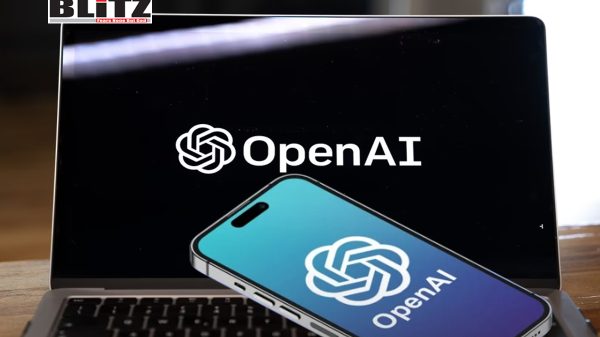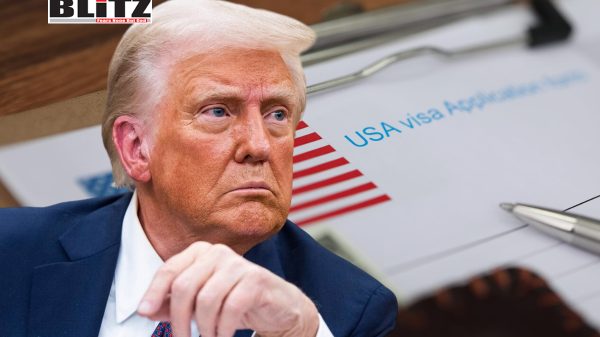OpenAI may become most valuable private tech firm with 500 billion valuation
- Update Time : Thursday, August 7, 2025

OpenAI, the company behind ChatGPT and a leader in the rapidly expanding field of artificial intelligence, is reportedly in early-stage discussions for a new stock sale that could value it at an unprecedented $500 billion. If realized, this valuation would not only underscore the company’s meteoric rise since launching its flagship AI product but would also potentially make it the world’s most valuable private technology firm, surpassing even Elon Musk’s SpaceX, which currently holds a $400 billion valuation.
According to a Bloomberg report released on August 5, the proposed transaction would take the form of a secondary share sale. This means that rather than the company issuing new shares to raise capital, existing employees and early stakeholders would be given an opportunity to sell their shares directly to investors. Such a move allows OpenAI to maintain its private status while rewarding its staff and early backers – a strategy that is becoming increasingly common among elite tech startups.
Founded in 2015 as a nonprofit research organization committed to the safe development of artificial intelligence, OpenAI has undergone a radical transformation. The company transitioned to a capped-profit model in 2019, partnering with Microsoft in a deal that included a $1 billion investment. That collaboration has since evolved, with Microsoft investing billions more and integrating OpenAI’s technology into its products – most notably, embedding ChatGPT into Bing and Microsoft Office.
OpenAI’s rise was turbocharged in November 2022 with the launch of ChatGPT. The chatbot captivated the public and corporate world alike, marking a new era of conversational AI. Since then, OpenAI has maintained a blistering pace of development, releasing new models and APIs that power a growing ecosystem of AI applications. Its annual subscription revenue has reportedly reached $12 billion – an astonishing figure for a company whose flagship product is less than three years old.
The timing of the reported share sale reflects the enormous investor appetite for AI-related ventures. Just weeks ago, OpenAI concluded a $40 billion funding round led by Japanese tech conglomerate SoftBank, bringing in $8.3 billion in capital. According to insiders, the round was oversubscribed nearly fivefold, with more investors vying for shares than there were available. That kind of demand has set the stage for the current talks about a new, potentially much larger share offering.
While details of the share sale are still being finalized, sources say that all existing investors -including Thrive Capital, a New York-based investment firm – are involved in the discussions. If the deal proceeds as envisioned, it would catapult OpenAI past SpaceX in valuation and reaffirm the company’s dominance in the private tech sector.
Neither OpenAI nor Thrive Capital has commented publicly on the potential transaction.
The potential $500 billion valuation comes at a time of frenzied activity and investment in artificial intelligence. Major tech giants like Meta, Microsoft, Amazon, and Alphabet have collectively spent tens of billions of dollars this year on AI initiatives. Projections suggest that figure could balloon to more than $400 billion by 2026, fueled in part by favorable policy measures.
One such measure is the so-called “Big Beautiful Bill” spearheaded by US President Donald Trump, which offers tax breaks to companies that front-load their capital expenditures. The bill is designed to stimulate technological innovation and economic growth – and it may end up accelerating the already brisk pace of investment in AI. Industry analysts believe that with freed-up cash, many of these companies will channel even more resources into AI development, data centers, and chip manufacturing.
OpenAI isn’t resting on its laurels. In an increasingly crowded field, it continues to push the envelope. This week, the company released a set of new “open weight” models, which allow developers to fully customize and fine-tune them – a move seen as a bid to maintain developer loyalty and remain relevant amid growing competition from open-source alternatives.
Even more significantly, OpenAI is preparing to launch its much-anticipated GPT-5 model later this month. While details remain scarce, expectations are sky-high. GPT-5 is rumored to deliver vast improvements in accuracy, reasoning, and multimodal capabilities – potentially extending OpenAI’s lead in the generative AI arms race.
Yet, the competition is not far behind. Anthropic, a rival AI firm backed by Amazon and Google, has quadrupled its revenue this year to $4 billion, according to internal sources. Meanwhile, other players such as Mistral, Cohere, and Meta’s LLaMA are also making inroads into both consumer and enterprise markets.
If OpenAI’s $500 billion valuation is confirmed, it would send shockwaves through Silicon Valley and the broader tech ecosystem. Such a milestone would validate the immense commercial promise of AI – not just as a research frontier but as a foundational technology reshaping industries from healthcare and finance to education and entertainment.
It would also signal a new era of influence for private companies, many of which are choosing to delay or bypass traditional IPOs in favor of private share sales and strategic partnerships. In doing so, firms like OpenAI retain greater control over their vision, corporate structure, and long-term mission – while still gaining access to vast pools of capital.
Ultimately, OpenAI’s potential $500 billion valuation is more than just a financial headline – it marks a turning point for the tech industry and perhaps even for capitalism itself. A company born as a nonprofit research collective is now poised to become the most valuable private technology firm on the planet, all within the space of a decade.
While the outcome of the stock sale is still uncertain, one thing is clear: OpenAI has redefined what’s possible in both artificial intelligence and corporate growth. And with GPT-5 on the horizon, it shows no signs of slowing down.










